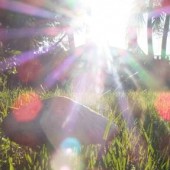
Jack Turner (2005) once wrote “we treat the natural world according to our experience of it.” How are our students “experiencing sustainability” in U.S. colleges and universities? With the rise in popularity of education for sustainability initiatives in both K-12 and higher education, experiential education has been championed as a key pedagogical approach moving forward. Experiential curriculum projects come in many different forms. From outdoor education and service learning to so-called “hands-on” applied work on campus projects and field science research, students are increasingly “learning by doing.” Yet far from just another methodology to be used in the classroom, the rise of experiential approaches indicates deeper tectonic shifts in higher education. As students and faculty engage in this form of learning, questions are raised as to the historic divide between theory and practice, the separation between so-called “town” and “gown” cultures, the curriculum and the co-curriculum, and what forms of knowledge and skills are of the most worth to a 21st century graduate. This analysis first briefly surveys the theoretical history of experiential education before proceeding to consider two specific curriculum projects at the intersections between sustainability and experiential education—place-based learning and project-based learning. The analysis concludes with a discussion of the possibilities and limitations of current forms of experiential education in higher education and a consideration of future trends and developments.
Continue Reading